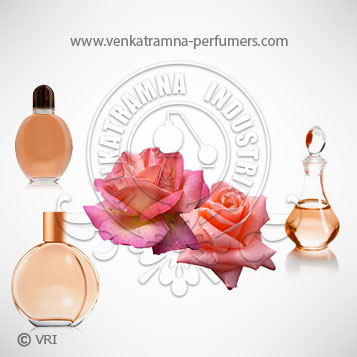
| Botanical Name | |
| Common Name | Tea rose |
| Country of Origin | France |
| Solubility | Alcohol soluble |
| Specific Gravity | 1.044 –1.054@ 20°C |
| Optical Rotation | -24 – -27 @ 20°C |
| Refrective Index | 1.535 –1.538 @ 20°C |
| PlantPart | Flowers |
| Bland With | Bergamot, Clary Sage, Lavender, Geranium, Jasmine, Neroli, Patchouli, Tea Tree, Rose, Lemon and Ylang-ylang. |
| CAS No | 8007 –75 – 8 |
| Flash Point | 102°C (215.6°F) |
| Extraction Method | Steam Distilled |
Rose is a woody perennial plant with sharp thorns. The flowers vary in size and shape and are usually large and showy in colours ranging from yellow and reds. It belongs to the genus Rosa and family of Rosaceae. Most species are native to Asia. They usually grow in the winter season.
Rose is a woody perennial plant with sharp thorns. The flowers vary in size and shape and are usually large and showy in colours ranging from yellow and reds. It belongs to the genus Rosa and family of Rosaceae. Most species are native to Asia. They usually grow in the winter season.
Color : Pale yellow clear liquid,
Aroma : Strong citrus scent.
Acting as a tonic and antiseptic, it is valuable as antiseptic in eye infection and is also soothing to nerves as well as stabilizing emotional /psychological state of mind. With the oil regarded as mild sedative and anti-depressant, it also helps in providing effective treatment for ailments related to stress, peptic ulcers, heart disease and others.
Rose water is widely used to make the skin lighter and brighter. This beneficial and pure water is also used to boost the liver and gall bladder. Further, it helps in treating asthma, coughs and hay fever